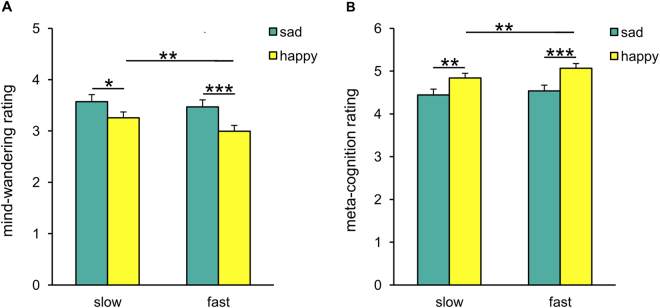Figure 3.
Effects of emotion (sad/happy) and tempo (slow/fast) on mind-wandering and meta-awareness. Experiment 1B replicated the results of Experiment 1A with an independent sample of participants (N = 140), using sad and happy music matched for numbers of beats per minute (BPM) and varying in tempo. Participants rated mind-wandering and meta-awareness on two 7-point scales (see Table S1 for precise questions). Error bars represent 1 SEM. *P < 0.05, **P < 0.01, ***P ≤ 0.001. (A) Significantly stronger mind-wandering was observed during sad (compared with happy) music as well as during happy slow (compared with happy fast) music. (B) Significantly more meta-awareness was observed during happy (compared with sad) music as well as during happy fast (compared with happy slow) music.

